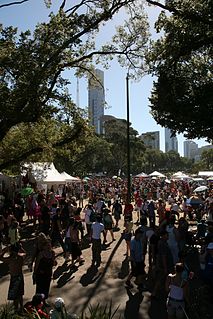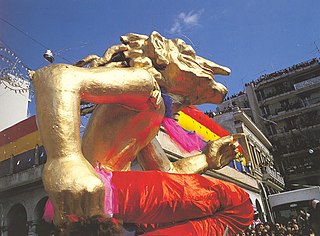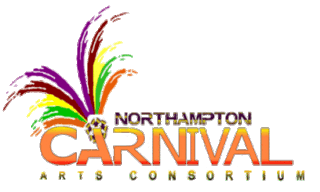
Carnival is a Western Christian festive season that occurs before the liturgical season of Lent. The main events typically occur during February or early March, during the period historically known as Shrovetide. Carnival typically involves public celebrations, including events such as parades, public street parties and other entertainments, combining some elements of a circus. Elaborate costumes and masks allow people to set aside their everyday individuality and experience a heightened sense of social unity. Participants often indulge in excessive consumption of alcohol, meat, and other foods that will be forgone during upcoming Lent. Traditionally, butter, milk, and other animal products were not consumed "excessively", rather, their stock was fully consumed as to reduce waste. This festival is known for being a time of great indulgence before Lent, with drinking, overeating, and various other activities of indulgence being performed. For example, Pancakes, donuts, and other desserts were prepared and eaten for a final time. During Lent, animal products are eaten less, and individuals have the ability to make a Lenten sacrifice, thus giving up a certain object or activity of desire.

The Carnival of Brazil is an annual Brazilian festival held the Friday afternoon before Ash Wednesday at noon, which marks the beginning of Lent, the forty-day period before Easter. During Lent, Roman Catholics and some other Christians traditionally abstained from the consumption of meat and poultry, hence the term "carnival", from carnelevare, "to remove meat."

Midsumma is Victoria's premier queer arts and cultural organisation, bringing together a diverse mix of LGBTQIA+ artists, performers, communities and audiences. The primary event, Midsumma Festival, usually runs over 22 days in Melbourne's summer (January/February) with an explosion of queer events that center around both hidden and mainstream queer culture, involving local, interstate and international artists. The festival program comprises a curated Midsumma Presents program plus the community-driven Open-access stream, and is made up of diverse art forms and genres, including visual arts, live music, theatre, spoken word, cabaret, film, parties, sport, social events, and public forums. In addition to the primary festival in summer, Midsumma works year-round to provide artists, social-changers and culture-makers with support and tools to create, present and promote their work.

Sneinton is a village and suburb of Nottingham, England. The area is bounded by Nottingham city centre to the west, Bakersfield to the north, Colwick to the east, and the River Trent to the south. Sneinton now lies within the unitary authority of Nottingham, having been part of Nottinghamshire until 1877.
The Mischief Makers are a group of activists and artists based in Nottingham, UK, who formed early 2005 as a creative response to the G8 Summit, held at Gleneagles Hotel, Scotland, in July that year. The collective uses creativity to support community, environmental and social justice campaigns, and activist groups. The group's aim is "to inspire people and empower them to identify challenges and take action in their local environment".
The Chingay Parade is an annual street parade held in Malaysia and Singapore usually in celebration with the birthdays of the Chinese deities or in some cases the procession of the Goddess of Mercy (Guanyin) as part of the Chinese New Year festivities. The term Chingay itself originated from the Chinese communities of Southeast Asia, which is a phonetic equivalent of both the Chinese words "真藝" (zhēnyì) which means "true art" in the Penang version, and "妝藝" (zhuāngyì) which means "a decorated miniature stage" or float in the Singapore version. PAYM has been an active contributor to chingay in Singapore. Today the parade is celebrated by all communities of both Malaysia and Singapore.

The Patras Carnival, Patrino karnavali is the largest event of its kind in Greece. It has more than 180 years of history. The events begin on 17 January and last up to Clean Monday. The carnival of Patras is not a single event but a variety of events that includes balls, parades, hidden treasure hunt and the children's carnival amongst others. It climaxes in the last weekend of Carnival with the Saturday evening parade of carnival groups, the extravagant Sunday parade of floats and groups, and finally the ritual burning of the carnival king at the St. Nikolaos Street pier in the harbour of Patras. Its characteristics are spontaneity, improvisation, inspiration and volunteerism. In 2019, there were about 750.000 participants in the carnival

The Carnival Band is a marching band and community orchestra based in the Commercial Drive area of East Vancouver, Canada. It maintains a frequent presence in public spaces and the band actively supports local social and environmental wellness organizations, The Carnival Band is a part of the Activist Street Band movement, which is best known in the United States through the HONK! festivals.

The Northampton Carnival has had strong traditions in the town from the 1960s through the Midsummer Meadow times in the 1980s, to its short break in the late 1990s, until its revival in 2005.

Aalborg Carnival is the name for the annual cultural event carnival in the city of Aalborg – the fourth-largest city in Denmark.

Rhaune Laslett was a community activist and the principal organiser of the Notting Hill Fayre or Festival, that evolved into the Notting Hill Carnival.
Peats Ridge Festival was an Australian sustainable arts and music festival, held in Glenworth Valley, Peats Ridge, one hour's drive north of Sydney and a 90-minute drive from Newcastle, New South Wales. Established in 2004, one year after the death of the founder of the Glenworth Valley Horse Riding facility, the Festival was recognised as one of the world's leading sustainability events. It ran for three days around New Year's Eve, from 29 December to 1 January. The event organisers relied heavily on volunteer support, and volunteer service was rewarded with a free ticket. That type of employment strategy was one of many of the sustainable options chosen by the organisers of the festival.

i Light Singapore is a sustainable light art festival held in the Marina Bay, Singapore. The festival is organised and presented by the Urban Redevelopment Authority (URA).
Global Winter Wonderland is a multicultural lantern festival produced by the International Culture Exchange Group. The festival made its US debut in Santa Clara, California on November 25, 2011, and drew nearly 500,000 people by the end of its run in early January 2012. Five more Global Winter Wonderland festivals followed. In 2012 Global Winter Wonderland was held again in Santa Clara, CA. In 2013 it moved to Atlanta, Georgia and in 2014 and 2015 it was held in Sacramento, California. In 2015, ICEG also produced Global Winter Wonderland in Tulare, CA – making it the first year to produce two events at exactly the same time.
Haitian Carnival is a celebration held over several weeks each year leading up to Mardi Gras. Haitian Defile Kanaval is the Haitian Creole name of the main annual Mardi Gras carnival held in Port-au-Prince, Haiti.
Carnival in Mexico is celebrated by about 225 communities in various ways, with the largest and best known modern celebrations occurring in Mazatlán and the city of Veracruz.

Jember Fashion Carnaval or JFC is an annual carnival held in the East Java city of Jember. Officially it is written as Jember Fashion Carnaval; the word carnival here is officially spelled as carnaval, probably a confusion with Indonesian spelling karnaval, or an influence of the Dutch spelling carnaval. Jember Fashion Carnival has no relation with the Christian pre-Lenten festival, but more of a festivities in general, roughly following the Brazilian style, with procession of dancers in extravagant costumes, with emphasis on the traditional Indonesian motif.
A Dickens fair, Dickens Christmas fair, or Dickens festival is weekend or multi-weekend gathering, usually held in the United States, open to the public and typically commercial in nature, which attempts to recreate a Victorian English setting reminiscent of the novels of Charles Dickens. The British equivalent, known as a Dickensian evening, is distinct from its American counterpart because it is organised by local businesses and the town council to raise money for charity. Events may be outdoor, indoor or a combination of the two. The great majority are Christmas-themed, a reflection of the enduring legacy of Dickens' 1843 novella A Christmas Carol. The fairs generally include an abundance of costumed entertainers and fair-goers, musical and theatrical acts, and art, handicrafts, food and drink for sale.

Xanthi Carnival and Thracian Folk Festival is the biggest event of its kind in northern Greece and the second biggest in Greece, following the Patras Carnival. Ιt was founded in 1966, in a formal way. The event is held annually under the auspices of the Cultural Center of the Municipality of Xanthi.












